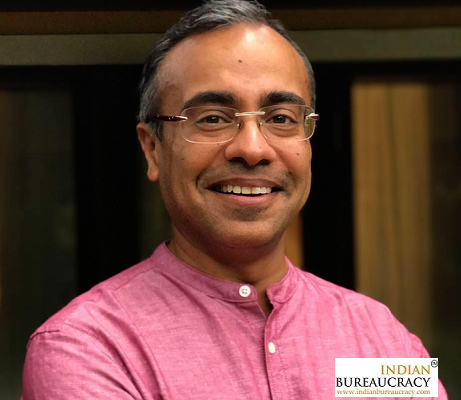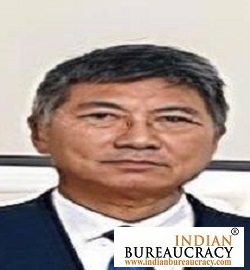Preeti Malhotra Founder Director, Foreign Investment India Forum in conversation with Editor- IndianBureaucracy.com on FDI , taxation and production linked investments ….
Editor : India is one the few countries to have good track record in FDI despite challenging time, how do you see it, Is it sufficient for country like India ?
The world is betting big on India. The fact that India has got FDI worth USD 58 Billion when the global average has declined is a positive achievement, but at the same time, we must note that it was China who received 3 times more FDI than us and topped the global rankings.
This is because of liberalisation of certain personal taxation norms. The current FDI is not sufficient, and we need much more to finance India’s National & Digital infrastructure push, projects like the 100 Smart Cities project, pan-India digitisation, skill India and make in India amongst others.
Editor : What kind of taxation and other reforms we need to boost FDI further in India?
To further boost FDI we need to foremost bring reforms in personal taxation of foreign investors and of expatriates coming to work in India. Currently, foreign investors get taxed on their global income if they exceed their stay in India beyond a specified limit. This limit is not enough for anyone to set up an industry or a new venture. Foreign Investors must be allowed to stay in India for longer periods of time to tend to their investments without the fear of being taxed on their global income while they are ready to pay tax on all income being generated in India. Our neighbour, China, adopted a similar policy a few years ago – and the direct impact on the FDI they received is the main differentiator between the size of the Indian economy and the Chinese economy today. Since 1980, China despite being a communist nation has received 273 Lakh crores of FDI while India which is a democracy has received just 44 lakh crores approximately.
A more progressive taxation policy and ease of living & doing business will also increase the number of regional headquarters in India. Today, most global organisations do not consider India as a potential destination for their regional headquarters even though India is one of their biggest markets. Similarly, India is not global financial hub despite having one of the largest stock markets.
The comparatively tiny state of Singapore and other countries which are ranked higher on the ‘ease of doing business’ rankings occupy this coveted position. As a result Indians, are not only missing out on new job opportunities that are made due to companies opening their offices in India, but Indian cities are also missing out on the opportunity to house expatriates who come to head such offices and often carry with them a wealth of expertise and knowledge.
Editor : How do you see Indian government initiatives like Production Linked Investments, will it attract enough Foreign Investment?
Of course, such schemes do help, the PLI scheme will be a very effective tool to increase FDI – and it is good to note that India has drawn inspiration from the success of PLI schemes in other parts of the world to increase FDI. But the Indian government has to do still more to attract FDI to India. PLI schemes guarantee incentives after investment, but what about attracting foreign investors to form a design on India in the first place? We have a tendency to think that India is isolated on the global stage, which is not the case. Money has no colour and no nationality. The Indian government must look at the global budget in addition to the budget of India to identify how much money is available for investment globally and work backwards. Right now, there is US$30 trillion worth of money available globally at 1% or negative interest rate. Why are we not picking it? Schemes like PLI may attract some of this money but we need to do more.
The Indian government needs to do more to promote an environment in which foreign investors get attracted to India – liberalisation of personal taxation, residency norms and ease of living & doing business are significant in achieving this.
The role of OCI community is growing and can be the catalyst for the economic prosperity of the country and how do you see it developing?
Editor : What the key roadblocks from the perspective of OCIs and what can be the solutions?
I think OCIs carry with them a wealth of capital, knowledge, technical expertise and experience that can be put to great use by the government. But more importantly, Foreign investors of different nationalities are looking at India for its commercial viability- and they must be made to feel welcome. If they invest in India, the country makes more money. In India 2.5 crore children are born every year as opposed to China to USA, so energy and opportunity in this country is abundant which foreign investors get attracted to.
With a policy change, foreign investors will feel enthusiastic and welcome by the Indian administration. It is common knowledge that setting up new projects or developing new breakthroughs takes time – which foreign investors lack because of the limits on their stay. Can you expect people to focus whole heartedly on projects when their time is limited? It is imperative that the Indian government provide them with an ‘ease of living’ environment in addition to an ‘ease of doing business’ one.
Tax reforms for foreigners – not Indians or NRIs – are not about modification but adopting a different mindset towards the global investment. The Indian government must create a mutually beneficial situation regarding residency and personal taxation. To ensure checks and balances, this new policy shift should only be applicable to individuals who have not been a citizen of India for at least 3-5 years.
Editor : What kind of interaction you had with government on these reforms and what has been the response ?
I think that the Indian administration is very forward looking and proactive when it comes to adopting new technologies and ideas. Even with this year’s budget, the government left India Inc positively surprised. This signals intent – the government is willing to listen to those who wish to support its mission of making India a Global Economic Leader.
We hope that the Indian government will consider our suggestions and are confident that any change in the personal taxation policy and ease of living for foreign investors will augment the Indian exchequer substantially.
About Preeti Malhotra : Ms Preeti Malhotra is the Chairman of Smart Bharat Group, a diversified conglomerate having interests in Realty, Hospitality, Healthcare, Wellness, Mobility & Education and also venturing into new-age projects.
She is an accomplished global professional, being the Past President of the Institute of Company Secretaries of India and was the 1st woman to be elected as President amongst the premier National Professional Bodies in India. In 2009, she received the “Recognition of Excellence” Award on behalf of the Institute, from the Hon’ble President of India.
Ms Malhotra is a member of various expert committees and an active contributor to various policy initiatives of the Govt of India. Presently, she is also a Member of the Company Law Standing Committee and Appellate Authority under MCA . She also spearheads as Chairperson- the ASSOCHAM National Council of Company Law, Corporate Governance & Corporate Social Responsibility and the Audit Committee of ASSOCHAM.
She is a strong advocate of inclusive growth and the Founder Director of the Global Citizen Forum (GCF). She is also the Founder Director of the Foreign Investors India Forum– a global industry body dedicated to promoting and supporting FDI into India.
Ms Malhotra is a Law Graduate from Law Faculty from Delhi University, a Fellow Member of the ICSI and a Commerce (Hons.) Graduate from Delhi University. Preeti had finished a study of exponential technologies at Singularity University, Silicon Valley.
IndianBureaucracy,com and its Team wishes Ms Malhotra the very best.





